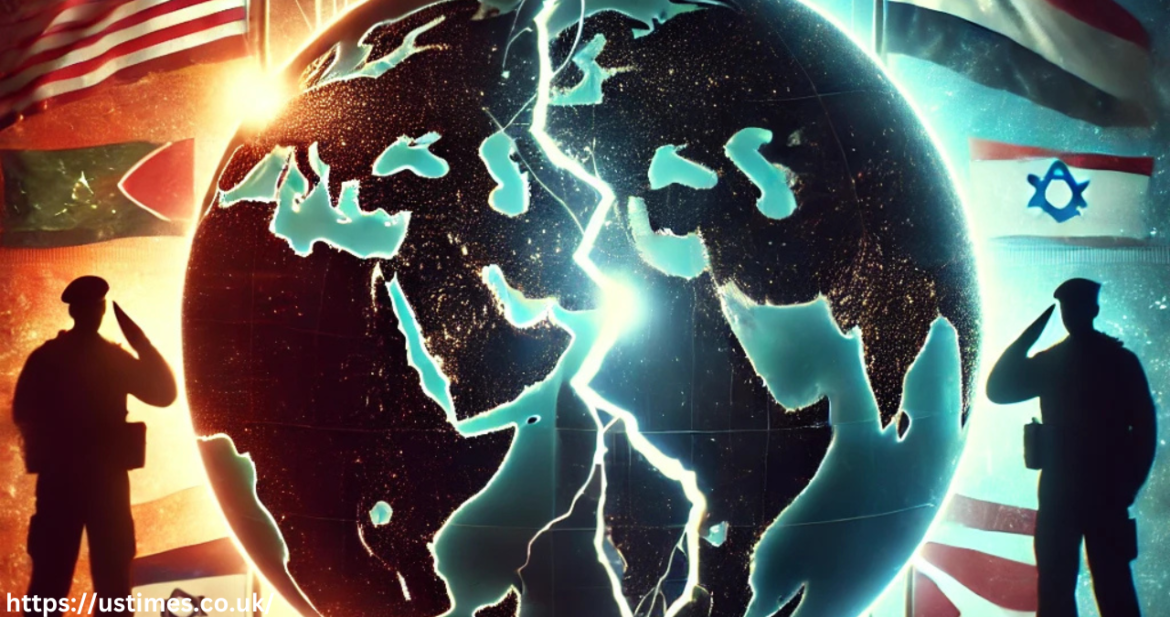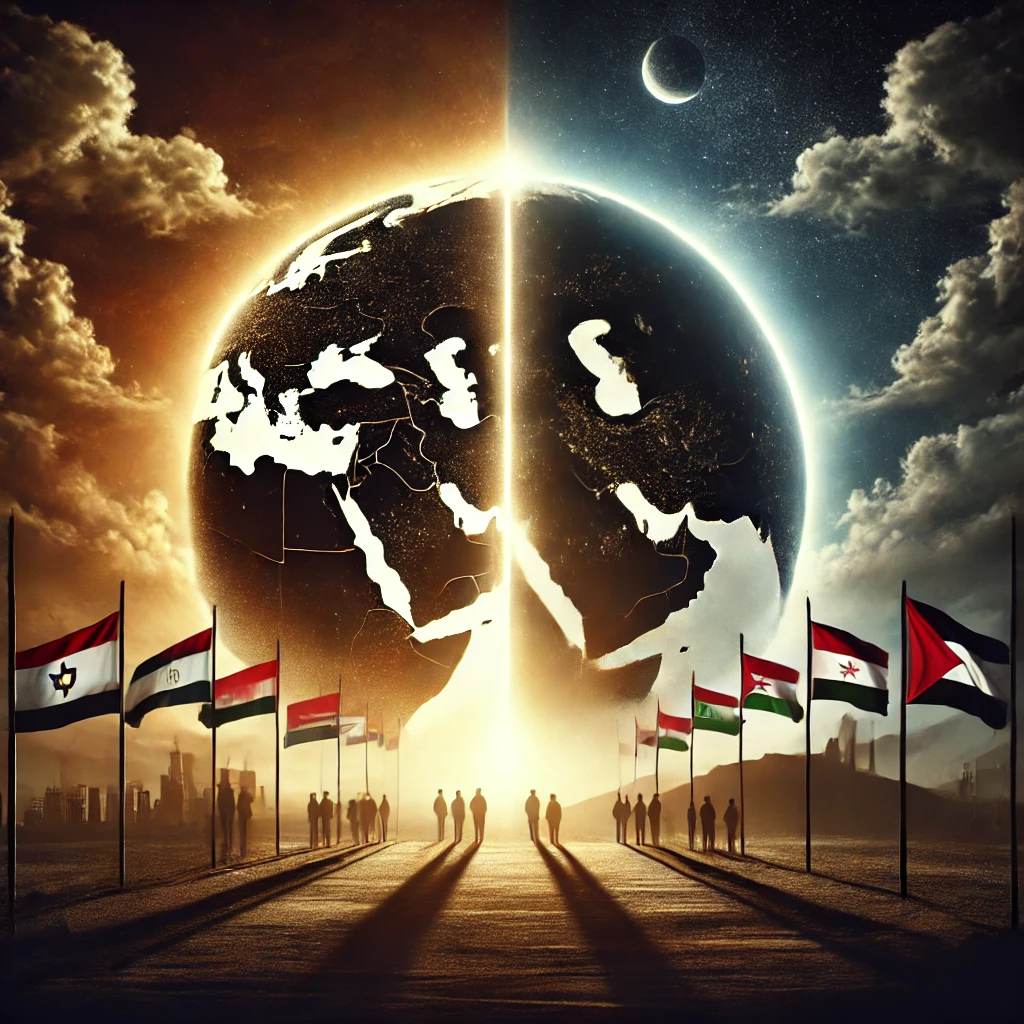
Introduction
The relationship between Iran Israel stands as one of the most complex and volatile rivalries in modern geopolitics. Rooted in historical, ideological, and strategic differences, the conflict extends beyond their borders, influencing regional stability in the Middle East and global politics. Iran, an Islamic Republic with aspirations of regional dominance, and Israel, a Jewish state striving to secure its existence, find themselves locked in a decades-long confrontation. This rivalry is defined by proxy wars, nuclear ambitions, and political posturing, with each side viewing the other as a critical existential threat. Understanding the nuances of this conflict is crucial in comprehending the broader Middle Eastern dynamics and its implications for international peace.
Historical Background of Iran-Israel Relations
1.1 Pre-1979: Cooperation and Mutual Interests
Before the 1979 Iranian Revolution, Iran Israel enjoyed a cordial and cooperative relationship. Under the leadership of Mohammad Reza Pahlavi, the Shah of Iran, the two nations shared strategic and economic interests. Israel viewed Iran as a crucial regional ally against Arab nations, while Iran benefited from Israeli technological and military expertise. This alliance was critical during the Cold War, as both countries were pro-Western and worked together to counter Soviet influence and Arab nationalism. Economic trade flourished, and Iran provided Israel with vital oil supplies in exchange for Israeli agricultural and military support. However, this period of cooperation would soon end with Iran’s political transformation.
1.2 Post-1979: The Islamic Revolution and Shift in Dynamics
The Iranian Revolution 1979, led by Ayatollah Khomeini, marked a significant shift in Iran-Israel relations. The new Islamic regime adopted a staunchly anti-Israel stance, branding Israel as the “Little Satan” in alignment with its anti-Western ideology. Khomeini’s vision of an Islamic Middle East saw Israel as an illegitimate state created through Western colonial interference. Iran severed all diplomatic ties with Israel, transforming its rhetoric into one of hostility. The revolution set the foundation for decades of enmity, as Iran aligned itself with Palestinian resistance movements and other groups opposing Israeli influence in the region.
1.3 Key Events that Shaped the Relationship
Over the years, several events have solidified the animosity between Iran and Israel. Iran’s support for groups like Hezbollah in Lebanon and Hamas in Gaza positioned it as a significant threat to Israel’s security. The Israel-Hezbollah conflict in 2006 and Iran’s involvement in Syria further escalated tensions. Additionally, Israel’s alliances with Iran’s adversaries, such as Saudi Arabia and the United States, have deepened the divide. Key incidents, including the Iran-Iraq War, the Lebanon War, and various military strikes, highlight the ongoing proxy battles and regional power struggles that define their relationship.
Core Issues and Points of Conflict
2.1 Ideological and Religious Differences
At the heart of the Iran-Israel rivalry lies a stark ideological divide. Israel, as a Jewish state, stands in direct opposition to Iran’s vision of a unified Islamic Middle East. Iran’s leaders reject the legitimacy of Israel, framing their conflict as part of a broader struggle against Zionism. Conversely, Israel views Iran’s rhetoric and actions as existential threats, particularly given Iran’s support for militant groups in the region. These religious and ideological differences fuel the political conflict, turning it into a symbolic struggle for dominance in the Middle East.
2.2 Nuclear Ambitions and Security Threats
Iran Iran Israel nuclear program is a significant flashpoint in its rivalry with Israel. Israel perceives a nuclear-armed Iran as a direct threat to its survival, prompting it to take aggressive measures to prevent Iran from achieving this goal. Over the years, Israel has been accused of cyber-attacks, such as the Stuxnet virus, and assassinations targeting Iranian nuclear scientists. Iran, on the other hand, insists its nuclear program is for peaceful purposes, accusing Israel of hypocrisy due to its unacknowledged nuclear arsenal. This arms race has drawn in the international community, leading to sanctions, the Joint Comprehensive Plan of Action (JCPOA), and ongoing diplomatic tensions.
2.3 Proxy Conflicts in the Middle East
Iran and Israel frequently clash through proxy forces, turning neighboring countries into battlegrounds. Iran supports and funds groups like Hezbollah in Lebanon, Hamas in Gaza, and various militias in Syria and Yemen. These groups target Israeli interests and act as Iran’s extensions in the region. In response, Israel has conducted numerous airstrikes in Syria to weaken Iranian forces and their supply lines. These proxy conflicts exacerbate regional instability, with civilians often bearing the brunt of the violence. Syria, in particular, remains a key flashpoint where Israel aims to counter Iranian influence by targeting military installations and weapon transfers.
Role of International Powers in the Rivalry
3.1 The United States and its Support for Israel
The United States plays a pivotal role in the Iran-Israel conflict by maintaining strong support for Israel. Israel relies heavily on American military aid and political backing to counter Iranian threats. The U.S. has also imposed economic sanctions on Iran, particularly under its “maximum pressure” campaign, aimed at curtailing Iran’s regional ambitions and nuclear program. Washington’s close ties with Israel and hostility toward Iran further polarize the two nations, making diplomatic reconciliation increasingly tricky.
3.2 Russia and China’s Balancing Act
Russia and China have taken a more balanced approach to the Iran-Israel rivalry. Russia maintains strong ties with Iran, mainly through its involvement in Syria, where it supports the Assad regime alongside Iranian forces. At the same time, Russia has cooperated with Israel to avoid direct military clashes in the region. Conversely, China has significant economic interests in Iran, including energy imports and infrastructure investments. Both countries advocate for diplomacy but avoid taking strong stances, positioning themselves as key players in any potential resolution.
3.3 Global Implications of the Iran-Israel Rivalry
The Iran-Israel conflict has far-reaching consequences for global security and stability. Tensions between the two nations impact global energy markets, mainly through threats to the Strait of Hormuz, a vital shipping lane for oil. The conflict also risks dragging in other international powers, as seen in the involvement of the United States, Russia, and China. Additionally, the proliferation of proxy wars exacerbates humanitarian crises in countries like Syria, Yemen, and Lebanon, further destabilizing the region.
Recent Developments and Future Outlook

4.1 The Abraham Accords and Changing Regional Alliances
The signing of the Abraham Accords, which normalized relations between Israel and several Arab nations, marked a significant shift in Middle Eastern alliances. Countries like the UAE, Bahrain, and Morocco have strengthened ties with Israel, isolating Iran further. These new alliances present a united front against Iran’s regional influence, intensifying its strategic challenges. The Abraham Accords have reshaped regional power dynamics, leaving Iran increasingly at odds with its neighbors.
4.2 Escalating Tensions: Covert Operations and Cyber Warfare
In recent years, the Iran-Israel conflict has taken on new dimensions, including cyber warfare and covert operations. Israel has been accused of orchestrating cyber-attacks, assassinations, and sabotage against Iran’s nuclear facilities. Iran, in turn, has threatened retaliation and increased its cyber capabilities. These covert battles highlight the evolving nature of modern warfare, where technological advancements play a crucial role in achieving strategic objectives.
4.3 Scenarios for the Future
The future of Iran-Israel relations remains uncertain. While the potential for direct military confrontation exists, efforts at diplomacy and international mediation could prevent escalation. A renewed nuclear agreement or a broader regional peace framework could reduce tensions. However, ideological differences and proxy conflicts will likely persist, making lasting peace a challenging but necessary goal for regional and global stability.
Conclusion
The Iran-Israel rivalry is a multifaceted conflict shaped by historical, ideological, and strategic factors. From their pre-1979 cooperation to the current state of hostility, the relationship has evolved into a key driver of Middle Eastern instability. While global powers play a significant role, the rivalry’s impact on regional security, energy markets, and international relations must be addressed. Achieving lasting peace will require diplomatic efforts, compromise, and a shared commitment to regional stability. Only then can the cycle of conflict be broken.
FAQs
What is the leading cause of the Iran-Israel conflict?
The conflict stems from ideological, religious, and strategic differences, particularly after Iran’s 1979 Islamic Revolution.
How does Iran support anti-Israel groups like Hezbollah?
Iran provides financial aid, weapons, and training to Hezbollah and other groups opposing Israel.
Why is Israel concerned about Iran’s nuclear program?
Israel fears Iran’s nuclear capabilities pose an existential threat to its security.
What role do the United States and other global powers play in the rivalry?
The U.S. supports Israel, while Russia and China maintain ties with Iran, influencing the conflict’s dynamics.
How does the Iran-Israel rivalry affect the Middle East?
The rivalry fuels proxy wars, regional instability, and humanitarian crises in countries like Syria, Lebanon, and Yemen.
What are the prospects of peace between Iran and Israel?
While challenging, peace could be achieved through diplomatic efforts, regional cooperation, and addressing core issues like ideology and security.


